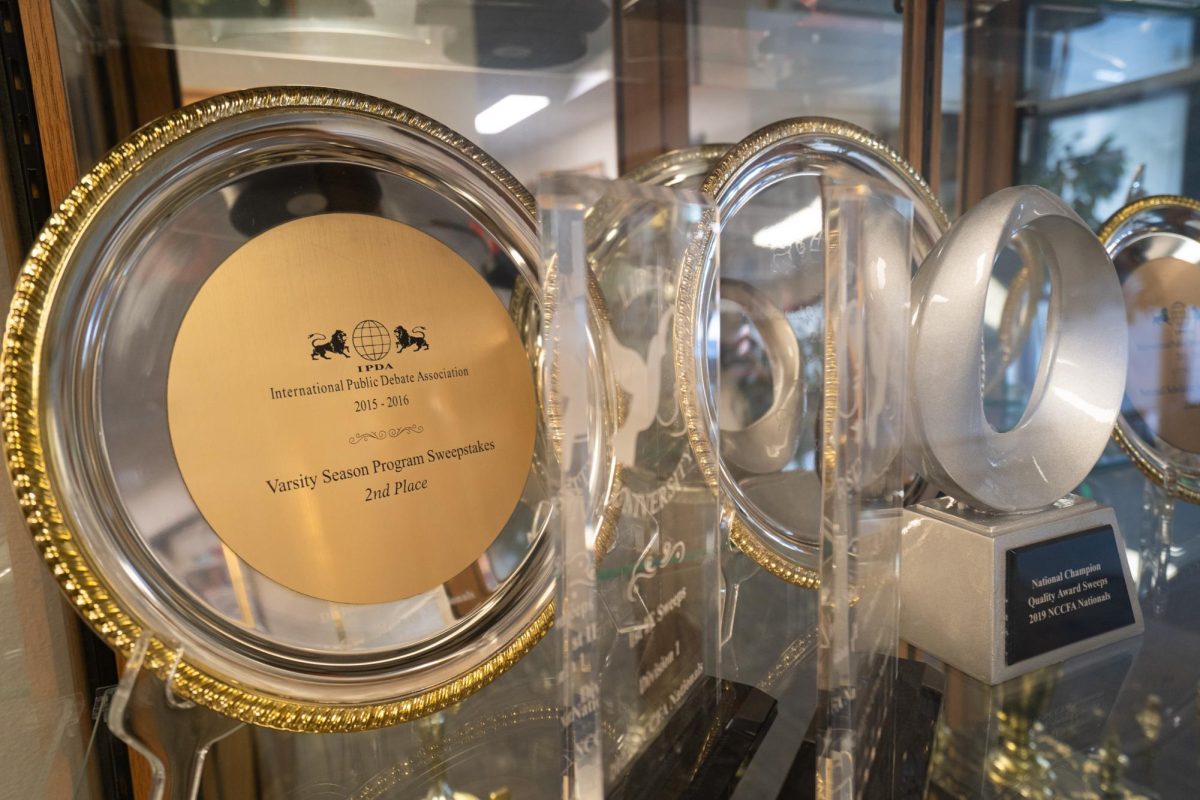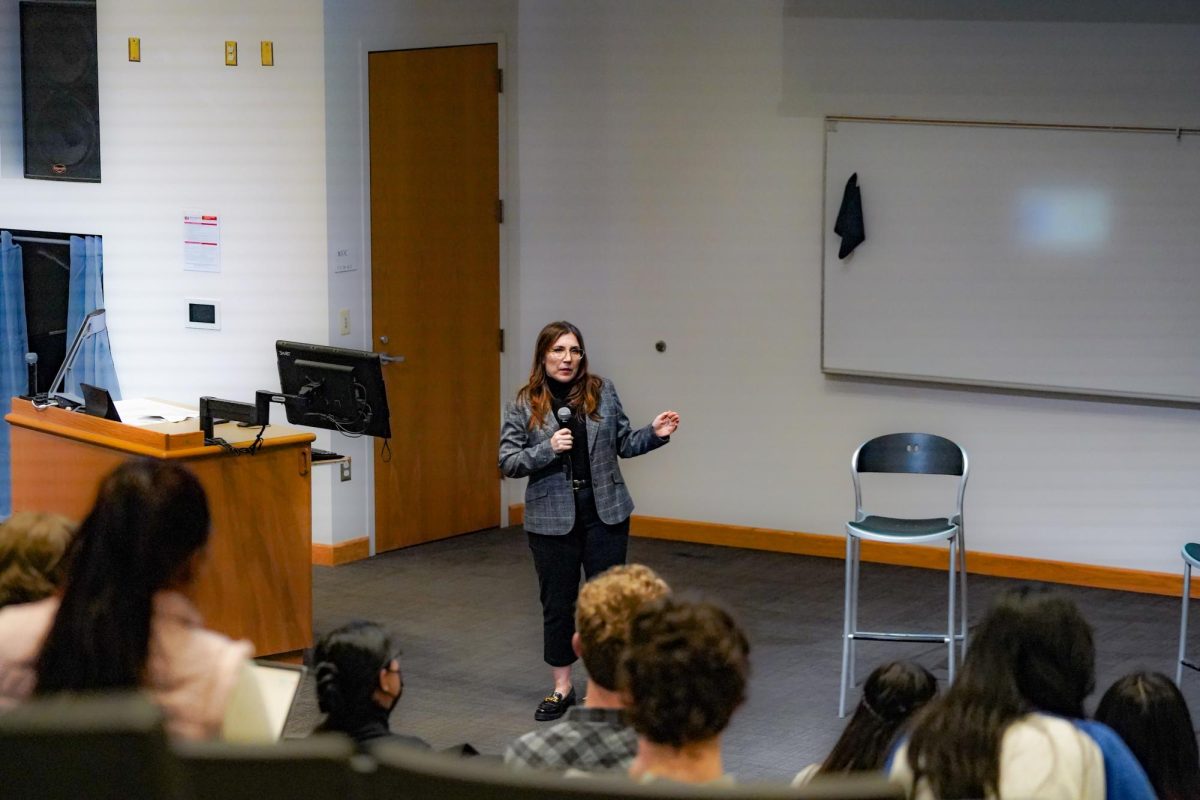Krochet Kids International helps Ugandan women
by Kelli Raines
The experienced hand works the yarn around the hook. The Ugandan woman pulls and a stitch is completed — the hat she is creating is almost finished. But the stitch is not simply a stitch for a hat. It is a stitch toward self-sufficiency, independence and dignity.
Krochet Kids International is a non-profit organization that exists to empower people to rise above poverty. The concept is simple. Women learn how to crochet, and Krochet Kids sells their crocheted hats in the United States. The money earned is returned to the women, and they are able to have a means to support themselves and their dependents.
Travis Hartanov, 2008 Whitworth University alumnus, and CFO and business operations manager of Krochet Kids, was invited to speak to Whitworth businesses classes Oct. 7. Senior Kelsie Raunio was in the Business Law class where Hartanov talked about different aspects of the organization and how it began.
“[Hartanov] is a Whitworth grad, so it was great to see how someone from this school can make a difference,” Raunio said. “It makes me see that we can really accomplish something if we try.”
Senior Ashley Moore learned about Krochet Kids through the Whitworth community. Although she has not yet purchased a hat, she said its mission is meaningful.
“I think Krochet Kids International gives a sense of independence and a way for them to provide for themselves in a way that is beneficial for all aspects of their lives,” Moore said.
Hartanov, along with Kohl Crecelius and Stewart Ramsey, created Krochet Kids during their college years. After learning how to crochet from Crecelius’ older brother during high school, the friends made and sold hats to their classmates. They used the money they made to fund their prom and pay for a hot-air balloon ride with their prom dates.
The three friends began traveling after high school. In 2006, Ramsey went to Uganda and saw how the 20-year civil war had affected the people of Northern Uganda. The people had gone to government camps for safety, but now could not support themselves.
“We were blown away by the dependency that had been created,” Hartanov said. “We asked ourselves, ‘How can we give people their dignity back and allow them to provide for their family?’”
The friends thought of their crocheting. The idea of teaching women in Uganda how to crochet seemed too simple at first. But the idea stuck and the friends decided to go for it.
“If we committed, we needed to go 100 percent in,” Hartanov said.
After raising money from family and friends, the three could fund the program for a year. Equipped with yarn and hooks, they took a trip to Uganda in 2007 and accepted 10 women into their program.
“We want them to save up enough money to start a business, go back to school and be self-sufficient,” Hartanov said. “These ladies have opportunity. They have pride and confidence in their eyes.”
Four years later, there are 150 women and seven mentors in Uganda. In addition, Krochet Kids has expanded to Peru. There are currently 10 women in Peru crocheting and the new Peruvian line came out Nov. 7.
“Every aspect of their lives have changed,” Hartanov said. “Our ladies don’t need handouts anymore for water, food and education. This is putting the ladies in control of their own lives.”
Hartanov said a primary focus of the organization is on relationships.
“We want these ladies to be known,” Hartanov said. “Every lady hand-signs her hat.”
Customers are able to personally thank the women online and learn more about them at krochetkids.org.
“The biggest way people can support is by buying the ladies’ products and thanking them,” Hartanov said.
Krochet Kids’ biggest retailer is now Nordstrom. Products can also be purchased online and at other locations, including The Service Station.







 Spokane?
Spokane?